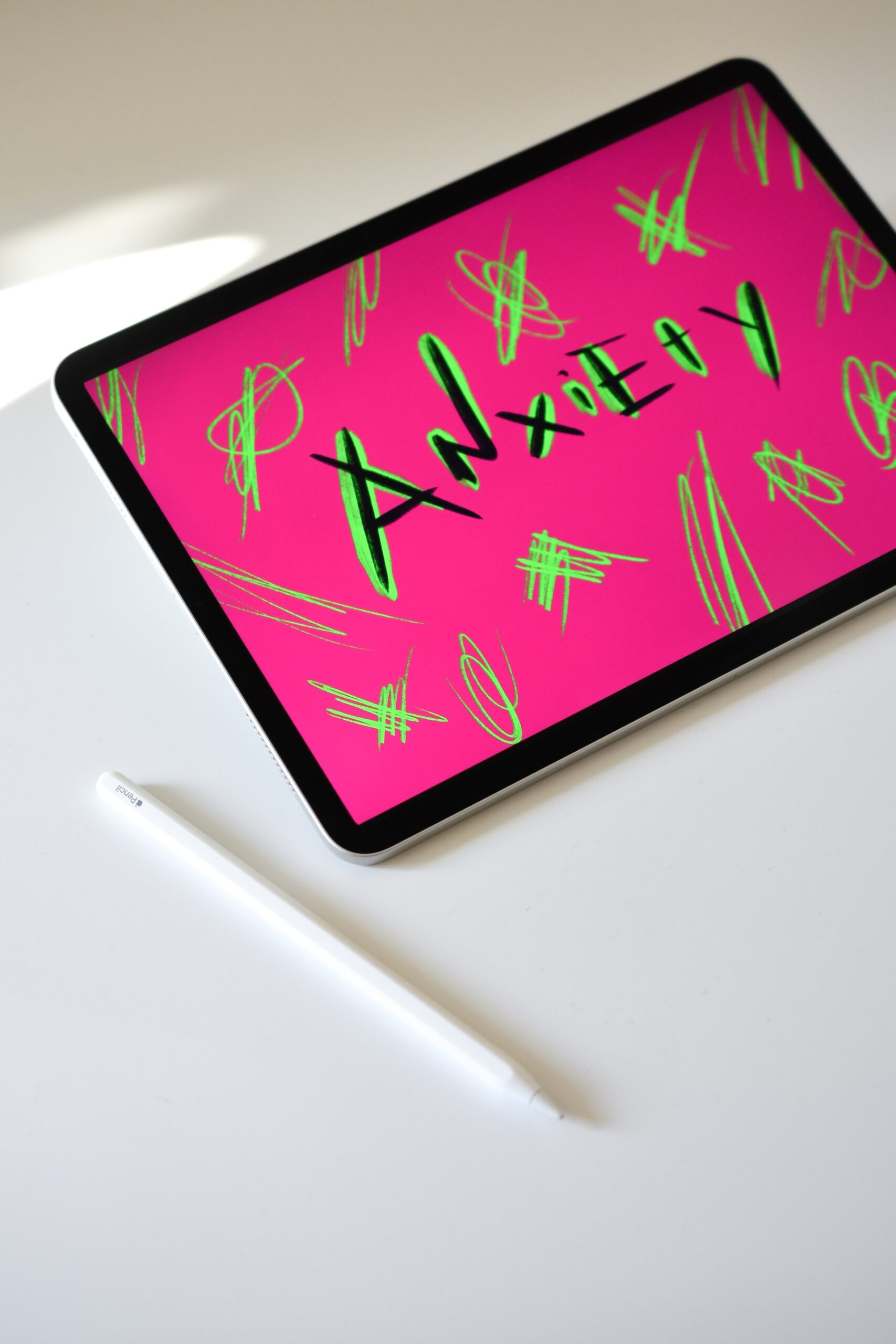If you are looking to reduce anxiety, there are many simple ways to do this on your own. Try these 20 suggested methods, and if you need more help, don’t hesitate to reach out to our team of counselors for a customized treatment plan.
1. Practice deep breathing exercises.
 Deep breathing exercises can reduce anxiety by activating the body’s relaxation response. When you breathe deeply, it sends a message to your brain to calm down and relax. The brain then sends this message to your body to slow down your heart rate, lower your blood pressure, and relax your muscles.
Deep breathing exercises can reduce anxiety by activating the body’s relaxation response. When you breathe deeply, it sends a message to your brain to calm down and relax. The brain then sends this message to your body to slow down your heart rate, lower your blood pressure, and relax your muscles.
Additionally, deep breathing can help to release tension and increase oxygen flow to the brain which can help to reduce feelings of anxiety. Deep breathing exercises can also help to focus the mind and bring attention to the present moment, which can help to reduce worry and rumination about the past or future.
2. Exercise regularly.
Exercise can help reduce anxiety by releasing endorphins, which are chemicals in the brain that act as natural painkillers and mood elevators. Exercise can also help to reduce stress by reducing the level of stress hormones such as cortisol and adrenaline in the body. Regular exercise can also help to improve overall physical fitness, which can increase feelings of self-esteem and self-confidence, and improve overall well-being.
Exercise can also help to distract from negative thoughts and worries, and can provide a healthy outlet for stress and tension. Additionally, it can improve sleep quality which is important for reducing anxiety symptoms. Long-term regular exercise can also change brain chemistry and structure, promoting the growth of new neurons and reducing the risk of anxiety disorders
Exercise can be as simple as taking a walk, going for a run, swimming, cycling, or doing other physical activities you like. It’s important to find an exercise that you enjoy and can make a regular habit, to see the most benefits for anxiety reduction.
3. Get enough sleep.
Getting enough sleep is important for reducing anxiety for several reasons.
First, sleep deprivation can increase levels of stress hormones such as cortisol, which can worsen feelings of anxiety. Additionally, lack of sleep can also lead to irritability, mood swings, and difficulty concentrating, which can further contribute to feelings of anxiety.
 Second, sleep plays an important role in regulating emotions and consolidating memories. It allows the brain to process the events of the day and make connections between emotions, thoughts, and experiences. This is important for maintaining emotional stability and reducing anxiety.
Second, sleep plays an important role in regulating emotions and consolidating memories. It allows the brain to process the events of the day and make connections between emotions, thoughts, and experiences. This is important for maintaining emotional stability and reducing anxiety.
Third, sleep plays an important role in physical health, and chronic lack of sleep can make a person more susceptible to physical illnesses, which can also contribute to feelings of anxiety.
Finally, getting enough sleep can help to improve overall mood and well-being, which can reduce feelings of anxiety. It is recommended for adults to get 7-9 hours of sleep per night, and having a regular sleep schedule and a relaxing bedtime routine can help to improve sleep quality.
4. Write down your thoughts and feelings.
Journaling can help reduce anxiety by providing a healthy outlet for thoughts and feelings. Writing down one’s thoughts and feelings can be a way to process and make sense of difficult emotions, which can help to reduce feelings of anxiety.
Journalling can help you to identify patterns and triggers in your thoughts, feelings, and behaviors. This can help you to understand and manage your anxiety. Journaling can also be a way to track progress over time, which can be motivating and provide a sense of control.
Journaling can also be a way to practice mindfulness and focus on the present moment. By writing down your thoughts and feelings, you can bring attention to the present moment and away from worrying about the past or future.
Additionally, journaling can also be a way to express gratitude, which can help to shift focus from negative thoughts and feelings to positive ones.
It’s important to note that journaling can be done in various ways. Some people prefer to write long-form, and others prefer to draw or doodle. There are also digital journaling options available, you can choose a way that works best for you.
5. Practice progressive muscle relaxation.
Progressive muscle relaxation (PMR) is a relaxation technique that involves tensing and then relaxing different muscle groups in the body to reduce muscle tension and anxiety. The goal of PMR is to help individuals become more aware of the physical sensations of muscle tension and learn how to relax those muscles.
 The process of PMR involves tensing a muscle group for a few seconds and then releasing the tension and noticing the sensation of relaxation. This process is done systematically, starting with the muscles in the feet and working up through the body.
The process of PMR involves tensing a muscle group for a few seconds and then releasing the tension and noticing the sensation of relaxation. This process is done systematically, starting with the muscles in the feet and working up through the body.
PMR can be effective in reducing anxiety because it helps to bring attention to the physical sensations in the body and away from worrying thoughts. It also helps to release muscle tension, which can contribute to feelings of anxiety.
Additionally, PMR can also help to improve sleep and reduce feelings of stress, as well as improve overall physical and mental well-being.
It’s important to note that PMR is a skill that needs to be practiced regularly to see the most benefits, so it can be helpful to set aside some time each day to practice the technique.
6. Try aromatherapy.
Aromatherapy is the practice of using essential oils to promote physical and emotional well-being. Essential oils are concentrated plant extracts that contain the natural fragrance and therapeutic properties of the plant from which they are extracted.
Aromatherapy can be used to reduce stress by inhaling the scents of certain essential oils, which can stimulate the olfactory receptors in the nose and send messages to the brain to promote relaxation and reduce feelings of stress and anxiety.
Some essential oils that are commonly used for stress relief include lavender, lemon, peppermint, bergamot, and chamomile. These oils can be used in a variety of ways, such as in a diffuser, added to a bath, or as a massage oil.
Inhalation of essential oils can also help to improve mood, reduce feelings of tension and promote overall relaxation of the body and mind.
It’s important to note that not all essential oils are safe for inhalation, and it’s important to use high-quality, pure essential oils and to follow the recommended usage guidelines to avoid any adverse reactions. It’s also important to consult with a healthcare professional before using aromatherapy, particularly if you have any health concerns or conditions.
7. Challenge negative thoughts.
Challenging negative thoughts is an important step in reducing anxiety. Negative thoughts, also known as cognitive distortions, are patterns of thinking that can lead to feelings of anxiety and depression.
Here are some strategies that can help you to challenge negative thoughts:
Identify the negative thought. The first step is to become aware of the negative thought and write it down. This can help to make it more tangible and easier to work with.
 Evaluate the evidence. Look at the evidence for and against the negative thought. Are there any facts or data that support or contradict the thought?
Evaluate the evidence. Look at the evidence for and against the negative thought. Are there any facts or data that support or contradict the thought?
Reframe the thought. Once you have evaluated the evidence, try to reframe the thought in a more balanced and realistic way. For example, instead of thinking “I will never be able to do this”, try thinking “I am capable of learning and improving.”
Practice mindfulness. Mindfulness can help to reduce the power of negative thoughts by bringing attention to the present moment and away from worrying about the past or future.
Challenge your beliefs. Negative thoughts are often based on underlying beliefs or assumptions. Challenge these assumptions by asking yourself if they are true, and if not, consider what evidence you have to support them.
Challenging negative thoughts takes practice and patience, but with time and persistence, it can become easier to recognize and challenge them, which can help to reduce feelings of anxiety.
13 more ways to reduce anxiety.
Here are thirteen more ways you can reduce anxiety:
- Meditate on Scripture.
- Avoid caffeine and alcohol.
- Take a warm bath or shower.
- Spend time in nature.
- Listen to calming music.
- Try a stress ball or fidget toy.
- Practice yoga or tai chi.
- Get a massage.
- Take a break when feeling overwhelmed.
- Practice gratitude and positive thinking.
- Try a relaxation app.
- Connect with friends and loved ones.
- Talk to a therapist or counselor.
Note the final tip. If you put these suggestions into play but still can’t reduce your anxiety to a manageable level, reach out to a qualified Christian counselor for help today.
“Anxiety”, Courtesy of Nik, Unsplash.com, CC0 License; “Overwhelmed”, Courtesy of Nik Shuliahin, Unsplash.com, CC0 License; “Happy”, Courtesy of Fernando Brasil, Unsplash.com, CC0 License; “Hope”, Courtesy of Ron Smith, Unsplash.com, CC0 License


